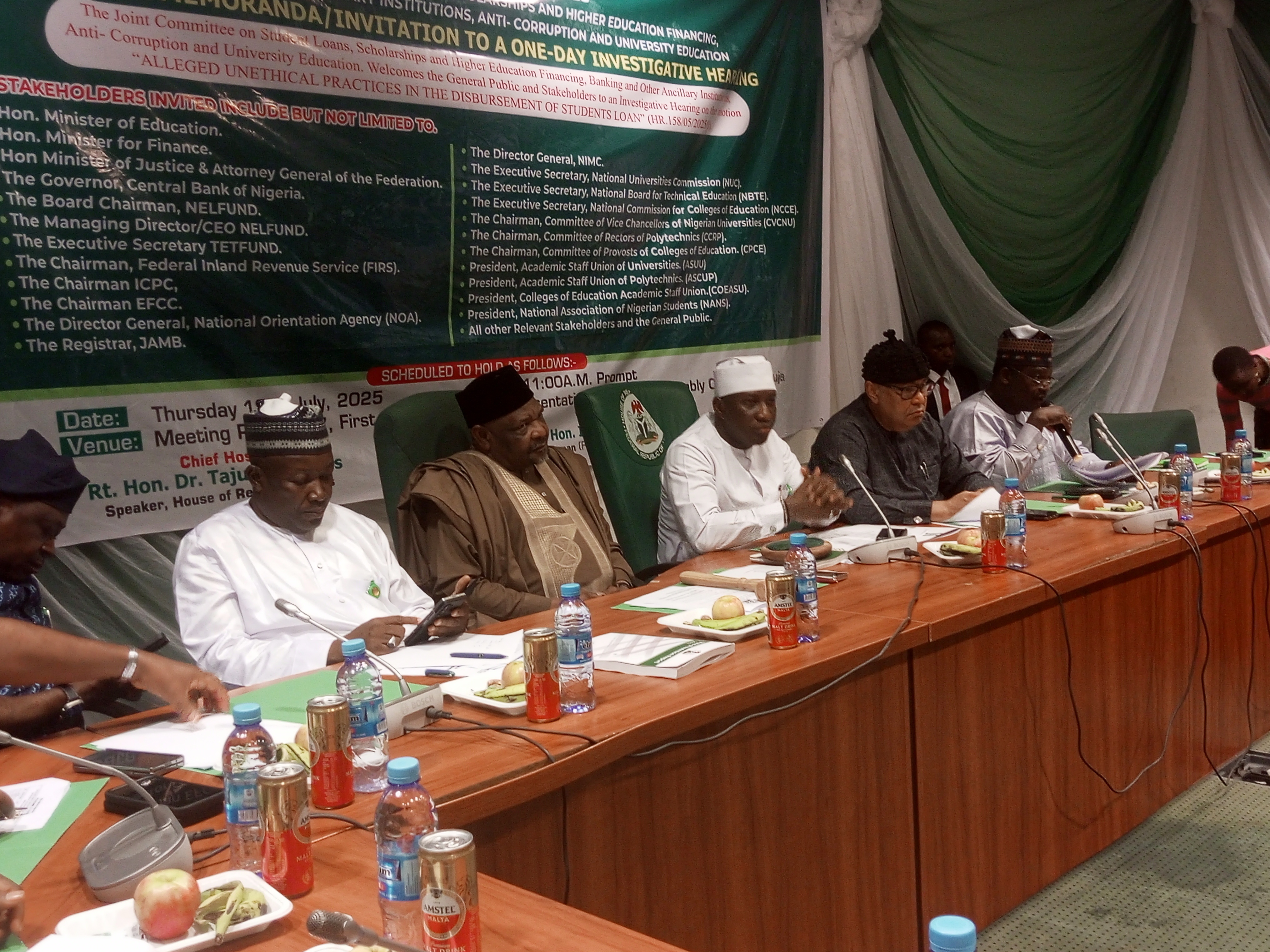NELFUND has 48 hours to provide detailed records on students loans disbursement

The House of Representatives has directed the Managing Director of the Nigerian Education Loan Fund (NELFUND), Akintunde Sawyer, to submit comprehensive documents detailing the appropriation and disbursement of funds to various institutions under the students loans scheme.
The directive was issued on Thursday during an investigative hearing convened by the joint committee on students loans, scholarship and higher education financing, banking and other ancillary institutions, anti-corruption, and university education..
The session, chaired by Rep. Ifeoluwa Ehindero, was in response to concerns over alleged fund diversions, non-compliance, and unethical practices in the scheme’s operations.
ALSO READ: EFCC decries fraud in public finance management
The motion to adjourn the hearing was moved by Rep. Awaji-Inombek Abiante, who noted discrepancies in the figures submitted by NELFUND.
“We couldn’t trace the submissions on the figure made by the MD of NELFUNDfrom the document submitted,” Abiante said, recommending that the agency return with documentation that aligns with the committee’s expectations.
In his presentation, Sawyer disclosed that NELFUND had so far received ₦203 billion, sourced from ₦10 billion in budgetary appropriation, ₦50 billion from EFCC asset recoveries, and ₦143 billion from TETFUND.
“We’ve received, in total, since the commencement of the Nigerian Education Loan Fund, a total of ₦203 billion,” Sawyer said. “In terms of expenditure, we have spent ₦84,038,476,881 to date—₦69 billion on student loans and ₦14.3 billion on operations. Our current balance stands at ₦114,614,696,159.”
He added that the Fund had disbursed loans to 366,000 individuals and made payments to 205 institutions. “In some cases, we paid institutions on behalf of students; in others, we made additional monthly payments of ₦20,000 to the individuals directly,” Sawyer explained.
However, lawmakers expressed dissatisfaction with the documentation presented. Rep. Abiante said, “I am not sure we will be able to follow through. In my opinion, it would be most appropriate for us to request NELFUND to go back and prepare documents in line with our expectations.”
Declaring the hearing open, Speaker of the House, Rep Tajudeen Abbas, represented by Rep. Aliyu Madaki, emphasised the legislature’s commitment to ensuring transparency and accountability in the student loan scheme.
“The credibility of the programme and the trust of the Nigerian people in public institutions are at stake,” Abbas said. “We cannot fold our arms and allow this to be swept under the carpet.”
He warned that administrative lapses, regulatory weaknesses, or abuse of process would not be tolerated, adding that the House has a constitutional and moral responsibility to safeguard the future of Nigerian students.
Quoting sections 88 and 89 of the 1999 constitution (as amended), Abbas reminded stakeholders that the House is empowered to investigate agencies responsible for implementing laws enacted by the National Assembly.
“This is not a witch-hunt,” he said. “Our goal is to ensure that every kobo allocated to support Nigerian students is used judiciously and transparently.”
Describing NELFUND as a flagship programme of President Bola Tinubu’s renewed hope agenda, Abbas noted that the initiative had already processed over 600,000 applications and disbursed over ₦73 billion to students nationwide.
“However, reports of mismanagement could derail what should be a transformative national intervention,” he warned.
Committee chairman Ehindero also commended the speaker’s leadership, saying it enabled the joint panel to create an impartial platform for oversight and reform.
He revealed that, as of June 30, 2025, NELFUND had disbursed ₦73.1 billion to 366,247 student beneficiaries across over 206 federal and state institutions. Of this, ₦38.26 billion went to tuition and ₦34.85 billion to upkeep allowances.
“The student loan initiative has rekindled hope for thousands of Nigerian families,” Ehindero said. “We are not out to witch-hunt anyone. Our objective is to ensure prudent accountability, improve the disbursement process, and add value to all stakeholders.”

